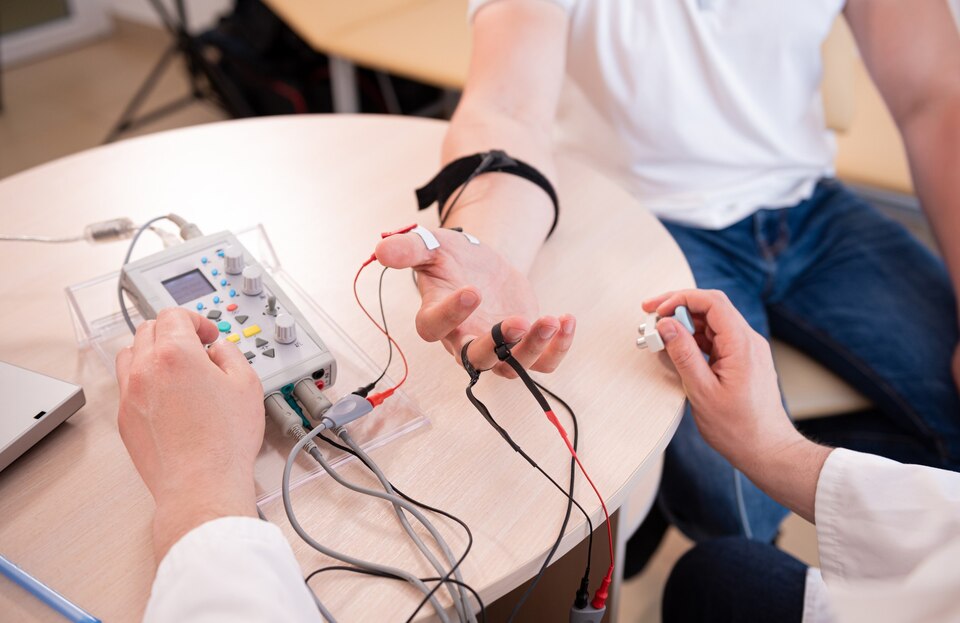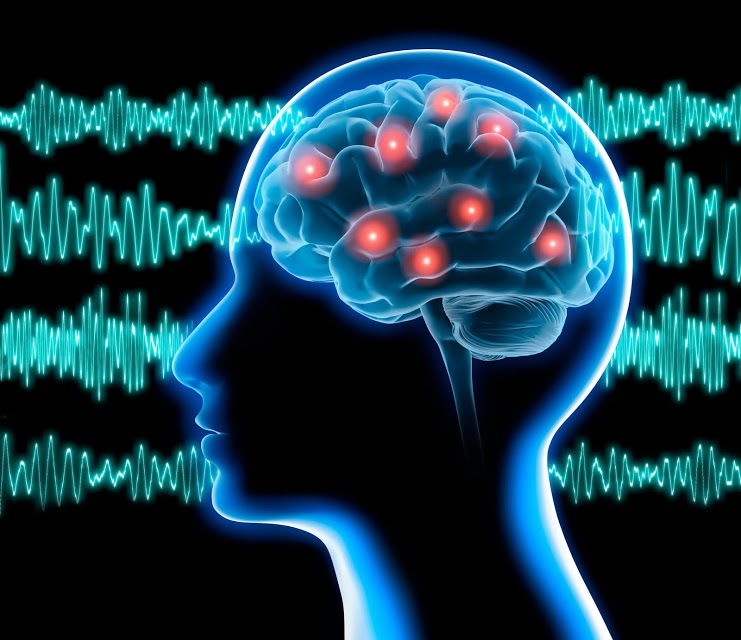Electro Diagnostic Services
Why Electrodiagnostic Testing Matters?
At Neurology & Pain Management Center, electrodiagnostic testing plays a key role in understanding nerve and muscle problems. It helps doctors get clear information for better treatment. Accurate testing leads to faster relief and improved care.
Key Benefits:
- Accurate diagnosis
- Pain source identification
- Muscle function check
- Nerve damage detection
- Early problem finding
- Treatment guidance
- Monitoring progress
- Non-invasive procedure
- Quick results
- Improved recovery
What to Expect?
During the test, small electrodes are placed on your skin or into muscles. The procedure is usually painless but may cause mild discomfort. It takes about 30 to 60 minutes, depending on the area tested.
Neurology & Pain Management Center uses experienced staff and up-to-date equipment. We focus on clear results and patient comfort. Our goal is to provide effective care based on accurate testing.
Book an Appointment!
Our Process
How We Make It Happen
We start by reviewing the patient’s medical history and symptoms carefully. This helps us understand the condition better and decide which tests are needed. A brief physical exam may also be done to check nerve and muscle function. This step ensures the right approach for accurate diagnosis.
We perform tests such as electromyography (EMG) and nerve conduction studies (NCS). These tests involve placing small electrodes on the skin or inserting fine needles to record electrical activity. The process is safe and provides real-time information on nerve and muscle health. This helps pinpoint the source of problems like numbness or weakness.
After testing, the results are carefully analyzed by a specialist. A detailed report is prepared explaining the findings and possible causes of symptoms. This report helps doctors plan the most effective treatment or further investigation if needed. We make sure the results are clear and useful for patient care.
Nerve Conduction Study and Electromyography (EMG)
At our Neurology & Pain Management Center, we offer advanced Nerve Conduction Studies and Electromyography (EMG) to assess nerve and muscle health. These diagnostic tests help detect nerve damage, muscle disorders, and neuromuscular abnormalities. The procedure is safe, minimally invasive, and essential for accurate diagnosis and personalized treatment.

How Does It Work?
- Electrodes are placed on the skin to stimulate nerves.
- Electrical signals are sent through the nerves.
- Responses are measured to assess nerve function.
- A fine needle electrode is inserted into the muscles.
- Muscle activity is recorded during movement and rest.
- Results help determine the location and severity of nerve or muscle issues.
Symptoms:
- Tingling or numbness
- Muscle weakness
- Chronic pain or cramping
- Unexplained limb discomfort
Electromyography (EMG)
Electromyography tests the electrical activity of muscles at rest and during contraction. It helps identify muscle disorders or nerve problems affecting muscles. Thin needles are placed into muscles to record signals.

How Does It Work?
- Needle electrodes inserted
- Muscle activity recorded
- Rest and movement tested
- Electrical signals displayed
- Results interpreted by a specialist
Symptoms
- Muscle cramps
- Weakness during movement
- Muscle pain
Electroencephalogram (EEG)
An electroencephalogram records electrical activity in the brain using electrodes on the scalp. It helps diagnose conditions affecting brain function, like seizures or sleep disorders. The test is painless and usually lasts about 30 to 60 minutes.

How Does It Work?
- Electrodes are placed on the scalp
- Brain activity recorded
- Patterns analyzed
- Abnormal signals detected
- Data reviewed by a neurologist
Symptoms
- Seizures
- Loss of consciousness
- Sleep disturbances
Ready to Take the Next Step?
Reach out to us today to schedule your electrodiagnostic test. We’re here to help you understand your nerve and muscle health.
Testimonial
Feedback From Those We've Helped



